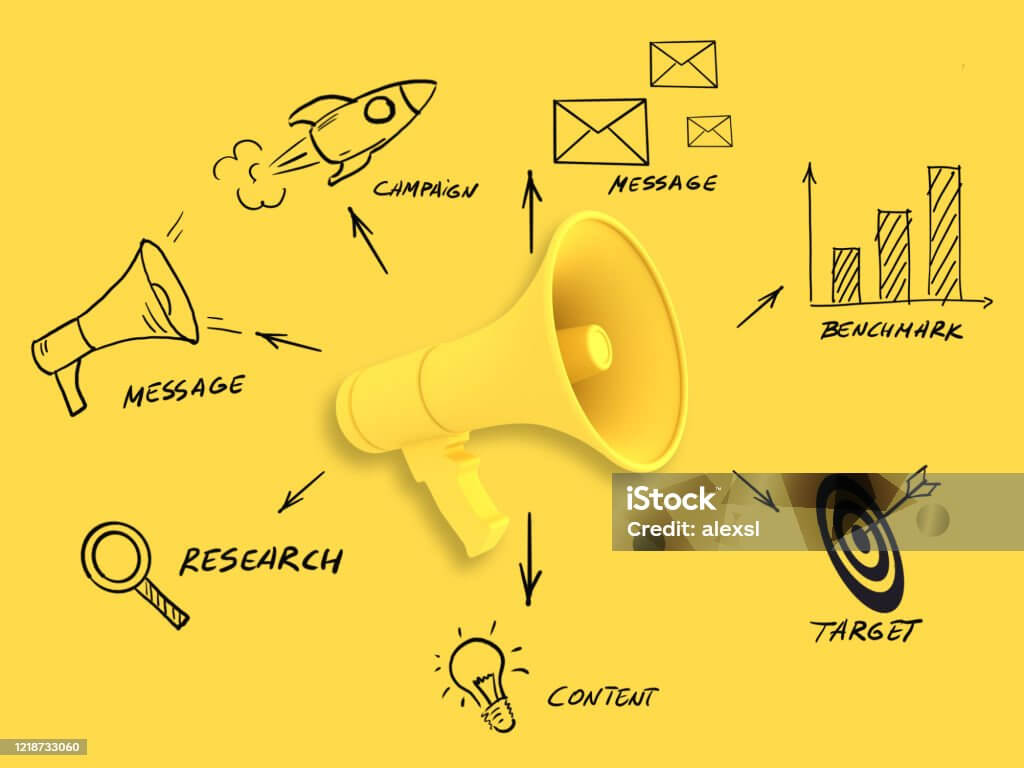
B2B SaaS content marketing is a reliable inbound marketing strategy focused on creating and distributing valuable, relevant, and consistent content to attract a specific targeted audience — other business owners.
Unlike other paid marketing strategies, content marketing helps SaaS companies build authority and credibility for their brand organically. Thus, 86% of SaaS marketers rely on content marketing to build brand awareness.
B2B SaaS products are often sold on a subscription basis, unlike traditional software, which is paid a one-time fee. Thus, B2B SaaS content marketing is not a one-time process and demands robust strategies to include evolving product features and market needs.
Here is a foolproof way to build an effective B2B SaaS content marketing strategy.
How to build a B2B SaaS Content Marketing Strategy?

You need not be a SaaS Content Marketing Expert to guide your content or marketing team in deriving a robust SaaS content marketing strategy. All you need to know is what sort of content will help your target audience and attract them to your SaaS product. However, understanding your target audience is not an easy feat.
Knowing your target audience involves understanding their needs, pain points, and their preferred content type. That demands you and your marketing team to research your target market, do competitive analysis, and identify gaps.
In simple words, here are the action items you will need to derive a solid content marketing strategy for your SaaS business.
- Define your target audience.
- Identify your product’s unique feature after doing a thorough competitive analysis.
- Maintain a content calendar and churn out various types of content.
- Monitor the customer journey and publish various types of content consistently.
- Work on SEO to improve your content ranking.
- Ensure you convey your company’s values in every content you create.
- Have a rigid content workflow to standardize content creation.
- Work on creating effective CTAs for your content, encouraging your audience to take action.
- Measure the content success with SaaS Content Marketing Metrics, like page views, click-through rates, time on page, bounce rates, etc.
- Enhance content creation based on real-time metrics.
Developing a comprehensive and integrated content marketing strategy enables you to build trust, engage prospective clients, qualify leads, enhance brand awareness, and establish thought leadership.
Now that you have a rigid content marketing strategy, the next step is to create a content calendar.
How to Create a B2B SaaS Content Calendar?
A B2B SaaS content calendar is an indispensable tool for any content marketing strategy. It provides structure, consistency, and strategic direction, ensuring that your content efforts are aligned with your business goals.
A well-structured content calendar can significantly boost your blog and website growth, provided it includes creating high-quality content and distributing it effectively.
Some SaaS Content Marketing Examples include case studies, ebooks, whitepapers, how-to guides, etc. You can leverage any content form for your SaaS business, provided it matches your audience purpose and aligns with your content marketing strategy.
Here is a quick reference for a B2B SaaS Content Calendar that you can use for your SaaS business.
Source: Isoline Communications
How to Plan Content for Your B2B SaaS Content Calendar?
Your content will solely rely on your B2B content marketing strategy. Moreover, it keeps varying based on your buyer’s journey.

Awareness Stage
If you’re new to the market or your customers are at the top of the marketing funnel, in the awareness stage, here are some content types you can create to explain your product.
Blog Posts: Write educational and informative articles that address common problems and questions in your industry.
E-books and Guides: Create comprehensive resources that provide in-depth information on a relevant topic.
Infographics: Develop visually appealing infographics that present data and insights in an easy-to-understand format.
Videos: Produce engaging videos introducing your brand, explaining industry concepts, or providing how-to tutorials.
Social Media Posts: Share bite-sized content, including tips, industry news, and engaging visuals, to drive traffic to your website.
Webinars: Host live or recorded webinars on relevant topics to educate your audience and showcase your expertise.
Consideration Stage
The middle of the marketing funnel or the consideration stage is where the customers know you but are still considering whether to buy your product.
Case Studies: Showcase real-world examples of how your product or service has successfully helped other businesses.
Webinars and Online Workshops: Provide in-depth knowledge and allow potential customers to interact with your experts.
Whitepapers and E-books: Offer detailed insights and solutions to complex problems, positioning your brand as an authority.
Comparison Guides: Create guides that compare your solutions with competitors, highlighting your unique value propositions.
Product Demos and Tutorials: Offer detailed demonstrations of your product’s features and benefits.
Customer Testimonials and Reviews: Share feedback from satisfied customers to build credibility and trust.
FAQs and Knowledge Base Articles: Address common questions and concerns that potential customers may have.
Decision Stage
The bottom of the funnel, or the decision stage, is where your customers know you, trust you and consider buying from you. Now, it’s time to keep your customers happy and choose your brand over your competitors.
Detailed Case Studies
Provide in-depth case studies that demonstrate how your product or service has successfully solved specific problems for your clients. Highlight measurable results and customer testimonials to build trust and showcase your product’s effectiveness.
Product Demos and Free Trials
Offer detailed product demos and free trials to allow potential customers to experience your product firsthand. This helps them understand how your solution works and how it can meet their specific needs.
Customer Testimonials and Reviews
Share positive testimonials and reviews from satisfied customers. Video testimonials can be particularly compelling, as they provide a personal and authentic perspective.
ROI and Value Calculators
Create calculators that help potential customers understand the return on investment (ROI) they can expect from using your product. These tools can make the decision-making process easier by quantifying the benefits.
Competitor Comparison Charts
Develop comparison charts that highlight the advantages of your product over competitors. Focus on key features, pricing, customer support, and other factors that differentiate your solution.
Detailed Product Guides and FAQs
Provide comprehensive product guides and FAQs that address common questions and concerns. Ensure that these resources are easy to access and understand.
Special Offers and Discounts
Offer limited-time discounts, special deals, or bundled packages to incentivize potential customers to make a purchase. Highlighting the value of these offers can create a sense of urgency.
Personalized Consultations
Offer personalized consultations or strategy sessions to help potential customers understand how your product can be tailored to their specific needs. This one-on-one attention can be a strong motivator for closing the deal.
Webinars Focused on Product Benefits
Host webinars that focus on demonstrating the specific benefits and features of your product. Include Q&A sessions to address any remaining questions or concerns.
Success Stories and Use Cases
Share detailed success stories and use cases that illustrate how different types of customers have benefited from your product. Highlight specific industries or business sizes to make the content more relatable.
Final Thoughts
B2B SaaS content marketing strategies involve a thorough understanding of your SaaS product, its unique features, and how it solves the customer’s problems. Only then, you can come up with effective content marketing strategies that align with your company’s goals. Since B2B SaaS is a technical niche and your target audience is a business owner, creating content can be demanding.
You can’t create generalized or irrelevant content, as they can expect concise and precise information. If you feel overwhelmed about content creation, you can always outsource it to SaaS Content Marketing Agencies.
FAQs
- Why is SEO important for B2B SaaS?
SEO is crucial for B2B SaaS companies because it helps improve online visibility and attract relevant traffic to their websites. It ensures that potential clients can easily find them when searching for solutions or services related to their industry.
- How to get B2B leads?
An effective content marketing strategy combined with SEO optimization can help you get potential B2B leads organically.